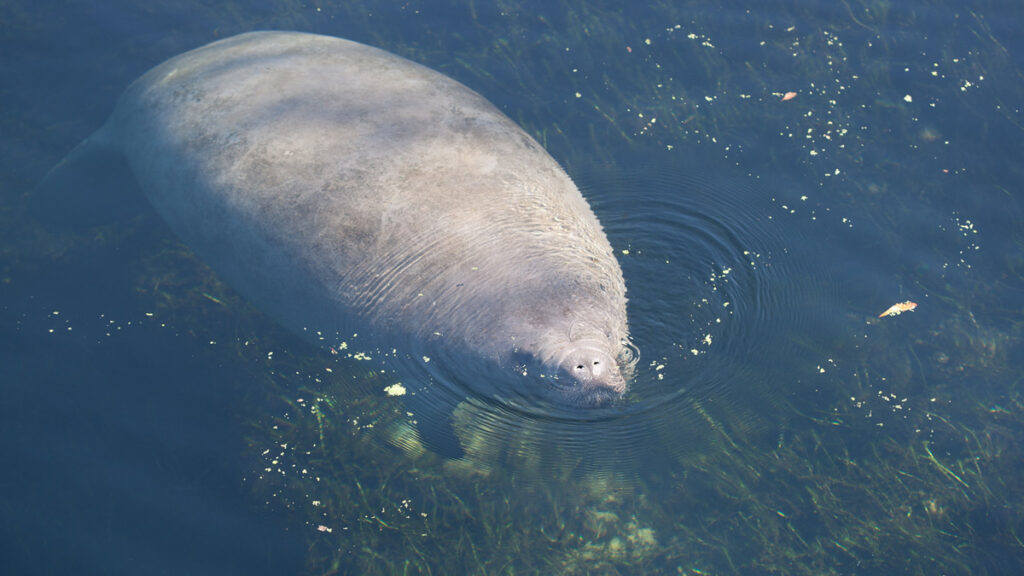Sebastian boaters need to be aware that when traveling the waters in the Indian River Lagoon, go slow and look below for manatees. Spring is a particularly important season as the slow-moving mammals naturally disperse from their winter refuges, traveling to other parts of the state and beyond.
Manatees depend on water generally warmer than 68 degrees Fahrenheit to survive the winter, so in the fall, they travel to Florida springs, power plant discharges, and other warm-water sites. In the spring, as water temperatures rise, manatees gradually leave their winter habitats and are more likely to be found in rivers, canals, and nearshore waters. While manatees are large, they can be challenging to see in the water.
The Florida Fish and Wildlife Conservation Commission (FWC) asked boaters to go slow and follow all manatee protection zones; wear polarized glasses and look out below while boating or using personal watercraft – a visible snout or large circles on the water are indicators that manatees are below the surface; and always give manatees space.
Waterway signs mark manatee protection zones, and maps of manatee protection zones are available online at MyFWC.com/Manatee by clicking on “Data and Maps.”
Seasonal Manatee Zones
From April 1 through Nov. 15, seasonal manatee zones require boaters to slow down in certain areas to prevent manatees from being injured or killed by motorboats or personal watercrafts. Boat strikes continue to be a major threat to Florida manatees. FWC law enforcement officers are on patrol in state waters to inform boaters of the seasonal manatee speed zones and take appropriate enforcement actions. Boaters are reminded to abide by the regulatory signs they see on the water.
Manatees are a protected species and it is illegal to feed, harass or harm them. In addition, physically handling a distressed or stranded manatee can cause additional harm. Instead, report injured, distressed, sick or dead manatees to the FWC’s Wildlife Alert Hotline at 888-404-FWCC (3922) so trained responders can assist.
The FWC and the U.S. Fish and Wildlife Service continue to respond to the manatee Unusual Mortality Event along Florida’s Atlantic coast. The FWC and the Service take manatee conservation seriously by actively implementing science-based conservation measures that are making a difference for manatees and their habitat.
What should you do if you see a manatee? The Viewing Guidelines page provides helpful tips on respectfully viewing manatees, additional guidelines for boat and personal watercraft operators, and information on what you can do to help these amazing aquatic mammals.
Are you interested in supporting the FWC’s manatee research, rescue and management efforts? You can purchase a Florida manatee license plate or donate $5 to receive a collectible FWC manatee decal. Both are available from your local Tax Collector’s office.
